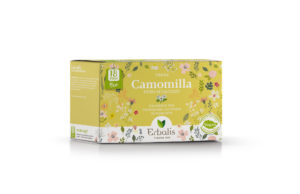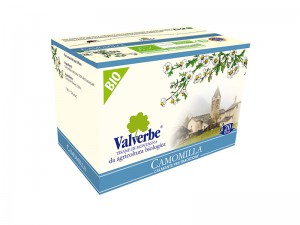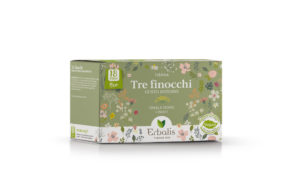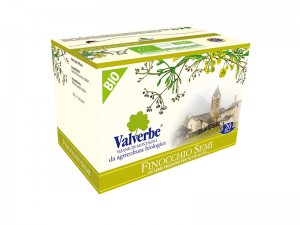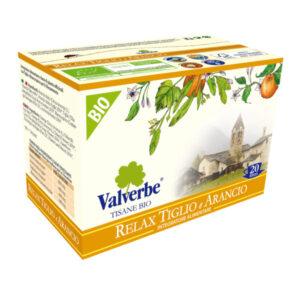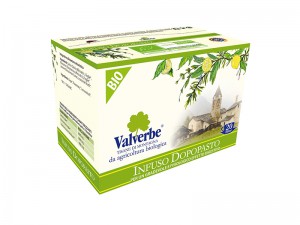WHICH HERBAL TEA DURING PREGNANCY? ADVICE AND WARNINGS ON USE
Which herbal tea can be taken during pregnancy? Tips and suggestions for drinking herbal teas without worries even in such a special period.
Herbal teas are used on a daily basis to treat a variety of health disorders. They bring many benefits to the body and reduce symptoms related to many ailments.
Pregnant women should be particularly careful, however, as some can become potentially dangerous during pregnancy.
Certain active ingredients may not be recommended during pregnancy.
For precautionary reasons, all pregnant women should consult their gynaecologist and avoid DIY.
Women can drink certain types of herbal tea, but they must still observe the following rules:
- Avoid making mixtures on your own initiative;
- Strictly follow the doses indicated, avoiding any form of abuse;
- Refrain from taking herbal teas and traditional medicines at the same time.
- Consult your doctor if you have any doubts, so bring along a case of the herbal tea you would like to take.
In this article we will discuss about:
1. Herbal teas permitted during pregnancy
1.1 Lemon balm Herbal Tea for a gentle relaxing effect.
1.2 Mallow Herbal Tea
1.3 Chamomile
1.4 Fennel Herbal Tea
1.5 Other recommended herbs
2. Which herbal teas to avoid during pregnancy
2.1 Yarrow Herbal Tea
2.2 Mistletoe Herbal Tea
2.3 Juniper Herbal Tea
2.4 Draining Herbal Teas
2.5 Liquorice Herbal Tea
DISCOVER VALVERBE HERBAL TEAS AND BUY ONLINE BY CLICKING HERE.
1. Herbal teas permitted during pregnancy
We will now present some Valverbe herbal teas that can be taken during pregnancy, as well as some plants commonly used during pregnancy. These products have a very pleasant taste and are extremely thirst-quenching and refreshing; their use also helps to relieve the symptoms associated with pregnancy.
During the nine months of pregnancy, women report a variety of problems, including digestive difficulties, problems with evacuation and general anxiety.
1.1 Lemon Balm Herbal Tea for a gentle relaxing effect.
DISCOVER VALVERBE HERBAL TEAS AND BUY ONLINE BY CLICKING HERE.
Lemon Balm (Melissa officinalis) is a herbaceous plant that belongs to the Labiateae family. Its consumption brings various benefits to the body and these can be summarised as follows:
- Antispasmodic action
- Anti-inflammatory power
- Carminative action
- Relaxing
It is indicated in cases of headache, nausea, emesis, pain in the gastrointestinal tract, colitis, disorders associated with the menstrual cycle, insomnia and tachycardia.
Because of these characteristics, lemon balm tea is particularly useful during pregnancy. Pregnant women struggle daily with complaints such as nausea, vomiting and many others. In addition, lemon balm has a relaxing effect and, if taken in the evening, can promote physiological sleep.
1.2 Mallow Herbal Tea
DISCOVER VALVERBE HERBAL TEAS AND BUY ONLINE BY CLICKING HERE.
Malva Silvestris is a perennial plant belonging to the Malvaceae family and is distinguished by its beautiful pale purple flowers. The flowers, together with the leaves, are widely used in herbal medicine because of their numerous medicinal properties: they contain mucilage, substances with calming and inflammatory properties.
Mallow Herbal Tea can be taken in the presence of many afflictions. Here are some examples:
- Cough: loosens phlegm and reduces inflammation of the airways. This disorder can also occur during pregnancy, in which case its origins are often related to the position of the child, resulting in the annoying reflux of the stomach.
- Constipation: its intake promotes gentler evacuation (it acts as a real natural laxative).
- Colitis Irritable bowel syndrome.
- Disorders of the oral cavity such as stomatitis and gingivitis.
- Laryngitis and pharyngitis.
- Vaginitis
- Fluid retention.
1.3 Chamomile
DISCOVER VALVERBE HERBAL TEAS AND BUY ONLINE BY CLICKING HERE.
The Chamomile plant belongs to the Asteraceae family and its properties have been known since ancient times.
The infusion made from its flowers is widely used because of its sedative effect: it reduces muscle contractions (antispasmodic property) thanks to the presence of flavonoids and coumarins.
It is ideal in cases of intestinal cramps, digestive difficulties, muscle spasms and pain associated with the menstrual cycle.
Traditional camomile also improves gastrointestinal function, but it can also be used as a natural anti-inflammatory. It has an important soothing and decongestant action, and can be used in cases of conjunctivitis, rhinitis, diseases of the oral cavity and dermatitis. It can also be applied externally directly by applying the filter sachet after infusion to the inflamed area.
Chamomile is also prescribed by some gynaecologists: it seems that taking it (always in moderation) can help resolve conditions affecting the urinary tract.
For all the information about the properties and benefits of chamomile, read our article here!
1.4 Fennel Herbal Tea
DISCOVER VALVERBE HERBAL TEAS AND BUY ONLINE BY CLICKING HERE.
Fennel Herbal Tea brings numerous benefits to the organism and is an excellent remedy for digestive difficulties associated with cramps, bloating and disorders of various kinds.
These symptoms occur very frequently in the early and late stages of pregnancy.
In these cases, fennel may be the right solution: it is a perennial plant, belonging to the Umbellifereae family, with a high carminative power. Its intake, in particular, reduces:
- the formation of gas in the stomach and intestines
- the fermentation of the bacterial flora.
It also encourages the production and secretion of gastric juice, thus stimulating digestion.
The seeds of the plant contain the most important active ingredients, including anethole, fencone and limonene.
Fennel increases milk secretion and is therefore used in the late stages of pregnancy and during breastfeeding (always in the appropriate doses).
According to many researchers, women should take fennel herbal tea at the end of each feed to avoid the onset of gas colic in the baby. The active ingredients of the preparation are, in fact, transferred into the mother’s milk, which is then swallowed by the baby.
1.5 Other recommended herbs
DISCOVER VALVERBE HERBAL TEAS AND BUY THEM ONLINE BY CLICKING HERE.
Pregnant women can take Sage, Linden and Linseed drinks.
Sage has a distinctly refreshing taste and is used to soothe stomach aches and pains and to treat typical seasonal illnesses (coughs and colds). Gynaecologists also suggest drinking sage tea at the end of pregnancy to alleviate symptoms associated with childbirth.
Linden Herbal Tea, on the other hand, is considered a real evening cuddle because it promotes sleep.
Finally, Tea with Linseed fights constipation: the mucilage in the seeds binds with water to form a gel that seems to ensure less painful evacuations.
Try our Valverbe herbal teas containing these herbs!
2. Herbal teas to avoid during pregnancy
The list of herbal teas that should not be taken during pregnancy is quite long and includes all preparations that are potentially harmful to the mother and foetus. Many herbs, for example, promote contractions of the uterine muscles and should therefore be strictly banned; these include Nettle, Aloe, Devil’s Claw, Vervain and Hypericum. Before embarking on any treatment, it is therefore essential to contact your gynaecologist and carefully follow his instructions.
2.1 Yarrow Herbal Tea
Yarrow is a plant belonging to the Asteraceae family. It has various properties, including healing, haemostatic, antispamodic, anti-inflammatory and astringent properties.
It is therefore used in cases of:
- Smooth muscle contraction
- Malaise associated with the menstrual cycle
- Gastrointestinal disorders.
It is contraindicated in the case of medication with anticoagulants (yarrow can reduce the action of medication). The plant also contains tjuone, a neurotoxic and psychotropic substance that is potentially dangerous for pregnant women.
It should also be avoided while breastfeeding.
2.2 Mistletoe Herbal Tea
Mistletoe is a medicinal plant with many beneficial properties; it appears to have strong anti-tumour properties (it acts as an immunotherapeutic agent against neoplasia).
It improves the health of the cardiovascular system, combats high blood pressure, stimulates diuresis, and promotes blood circulation in the brain and heart muscle. It alleviates symptoms related to gastrointestinal complaints and has a high anti-inflammatory power.
Mistletoe herbal tea should not be taken in the event of hypersensitivity to one or more of its constituents, and caution should be exercised by anyone undergoing anticoagulant medication. Finally, the drink is contraindicated during pregnancy: the plant contains particular substances that can cross the placenta and reach the foetus.
2.3 Juniper Herbal Tea
Juniper belongs to the Cupressaceae family and has several interesting properties. It stimulates digestion, is a natural antiseptic for the respiratory and urinary tracts, prevents cramps and is a powerful anti-rheumatic.
Juniper herbal tea is highly inadvisable during pregnancy as it is thought to stimulate uterine contractions, thus endangering the health of the baby.
2.4 Draining Herbal Teas
Women’s arch-enemies are cellulite and water retention, and these problems are exacerbated during pregnancy by hormonal changes, changes in the body and difficulties with blood circulation. Many young women rely on draining herbal teas, but these must be taken carefully as their active ingredients are absorbed by the body and therefore also by the foetus. Herbal teas containing green coffee are not recommended and, in any case, the use of draining products should always be evaluated with your doctor.
Discover all our draining and purifying herbal teas here!
2.5 Liquorice Herbal Teas
Liquorice consumption during pregnancy should be limited.
The plant, which belongs to the Fabaceae family, has numerous properties, including laxative and digestive properties; taken in inappropriate doses it can cause an increase in blood pressure and progressive water retention.
It is not recommended for hypertensive people or pregnant women.
The information contained on the Site and in this article is not intended to and should not in any way replace a direct doctor-patient relationship or specialist consultation.
It is recommended that you always seek the advice of your doctor and/or specialist regarding any indication given.
If you have any doubts or questions about the use of a medicine or infusion product you should consult your doctor.
The information on the Site is published after careful verification.
However, we cannot guarantee the absence of errors and the accuracy of the information disseminated.
The Site, its Publisher and its authors do not guarantee or assume responsibility for the information provided in any form.




